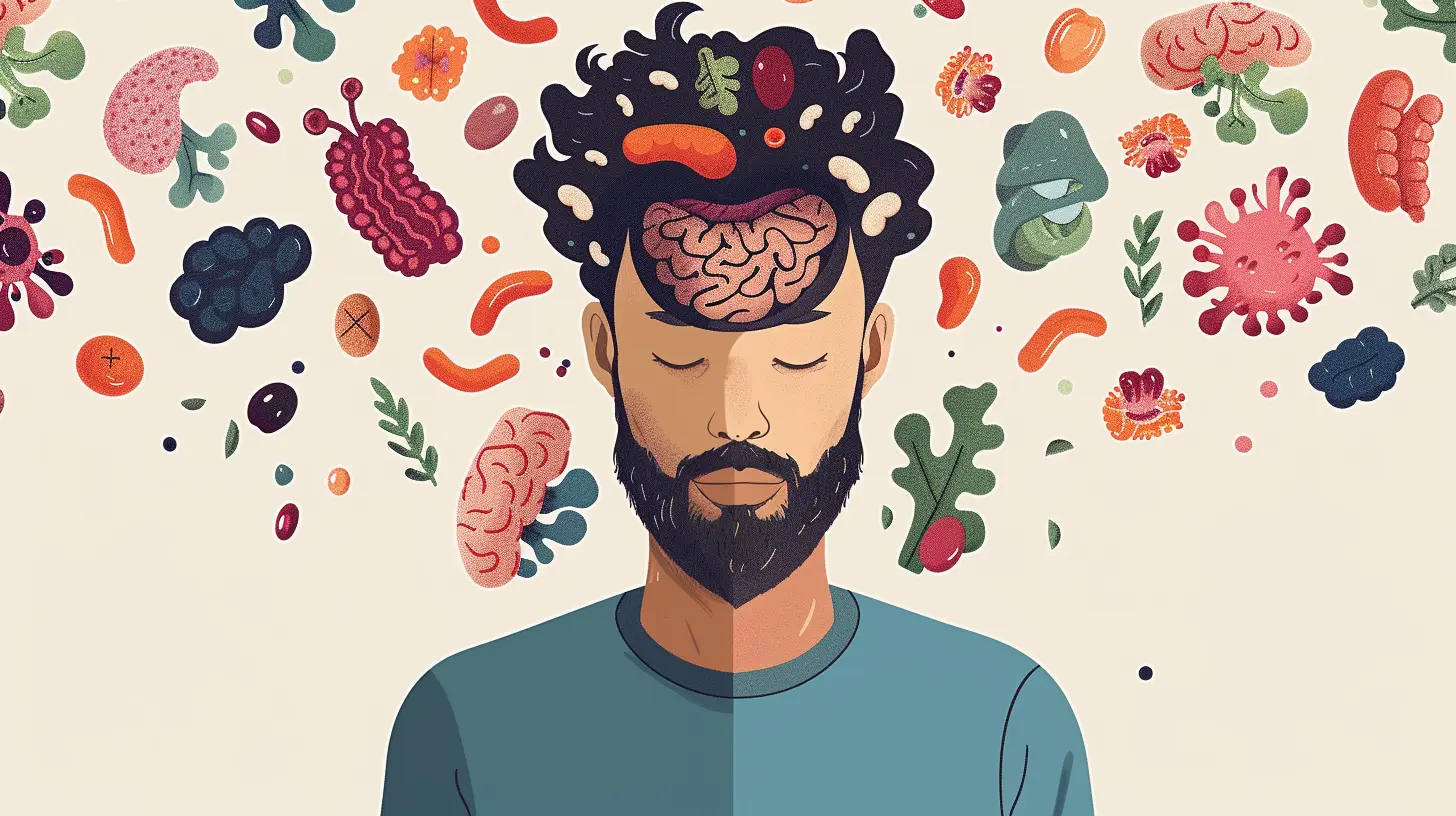The Connection Between Stress and Gut Health
26 November 2025
Have you ever noticed that when you're feeling anxious or overwhelmed, your stomach seems to be in turmoil too? Maybe it's an upset stomach before a big presentation or digestive issues during a stressful period in life. It turns out, this isn't just a coincidence—there’s a deep connection between stress and gut health.
Our brain and gut are constantly communicating, and stress can throw this delicate balance into chaos. But how does this happen? And what can we do to keep our gut happy even when life gets stressful? Let’s break it down. 
How Stress Affects the Gut
Stress isn't just a feeling—it’s a full-body response. When you're stressed, whether from work, relationships, or daily life, your body perceives it as a threat. And just like a caveman being chased by a tiger, your body kicks into fight-or-flight mode.The Gut-Brain Axis: A Two-Way Street
The gut and brain are in constant communication through what’s called the gut-brain axis. It works like a high-speed internet connection between your brain and digestive system. When you're stressed, your brain sends distress signals to your gut, which can lead to:- Slowed digestion – Ever felt like food sits in your stomach like a rock when you're anxious? That's because stress slows digestion to conserve energy for dealing with the "threat."
- Increased gut sensitivity – Stress can make your digestive system more sensitive, amplifying bloating, pain, or discomfort.
- Inflammation – Chronic stress triggers inflammation, which can disrupt gut bacteria and lead to issues like irritable bowel syndrome (IBS) or inflammatory bowel disease (IBD).
The Role of Cortisol in Gut Health
Cortisol, the body’s primary stress hormone, plays a crucial role here. When you're stressed, cortisol spikes, affecting your gut in several ways:- It increases gut permeability, meaning harmful substances can leak into your bloodstream (aka “leaky gut”).
- It disrupts the balance of gut bacteria, favoring the growth of harmful bacteria over beneficial ones.
- It reduces stomach acid production, which can lead to bloating, indigestion, and nutrient absorption issues. 
Stress and Gut Microbiome: The War Inside Your Belly
Your gut is home to trillions of bacteria, fungi, and other microbes—together known as the gut microbiome. These tiny organisms play a massive role in digestion, immunity, and even mood regulation.But stress can throw this community into chaos. A stressed gut tends to:
- Reduce beneficial bacteria, making digestion harder.
- Encourage the overgrowth of harmful bacteria, leading to bloating, diarrhea, or constipation.
- Affect serotonin levels, since around 90% of this "happy hormone" is produced in the gut. No wonder stress messes with both our mood and our digestion! 
Signs That Stress is Hurting Your Gut
If you've been under pressure and your stomach feels off, stress might be the culprit. Here are some common signs:✅ Frequent bloating after meals
✅ Stomach cramps or discomfort
✅ Changes in bowel movements (constipation, diarrhea, or both)
✅ Increased acid reflux or heartburn
✅ Unexplained nausea
✅ Feeling full quickly or having a reduced appetite
Sound familiar? Don’t worry—you’re not alone, and there are ways to break this cycle. 
How to Reduce Stress and Improve Gut Health
The good news? You can take control of your gut health even when life is throwing curveballs. Here’s how:1. Practice Relaxation Techniques
Since stress is a major gut disruptor, managing it is crucial. Try:- Deep breathing exercises – Inhale for four seconds, hold for four, and exhale for four. It calms your nervous system.
- Meditation or mindfulness – Just 10 minutes a day can significantly lower stress.
- Yoga or gentle movement – Helps relieve tension and improves digestion.
2. Eat Gut-Friendly Foods
Food plays a huge role in keeping your gut balanced. Focus on:- Probiotics – Found in yogurt, sauerkraut, kimchi, and kefir, these healthy bacteria support digestion.
- Prebiotics – Foods like onions, garlic, and bananas feed good gut bacteria.
- Fiber-rich foods – Whole grains, vegetables, and legumes keep digestion smooth.
- Hydration – Stress can dehydrate you, so drink plenty of water to support digestion.
3. Avoid Gut-Damaging Habits
Some habits worsen the stress-gut cycle. Cut back on:🚫 Excess caffeine and alcohol – They can irritate your gut lining.
🚫 Highly processed foods – They lack nutrients and can fuel inflammation.
🚫 Skipping meals – Irregular eating patterns disrupt digestion.
4. Get Quality Sleep
Lack of sleep increases stress hormones, which in turn disrupt gut bacteria. Aim for 7-9 hours of quality sleep each night. Create a bedtime routine, limit screen time before bed, and keep your sleep schedule consistent.5. Move Your Body
Regular exercise isn’t just for fitness—it also benefits your gut! Activities like walking, jogging, or yoga help regulate digestion and reduce stress hormones.6. Laugh More
Yes, really! Laughter reduces stress and promotes relaxation, which directly benefits digestion. Ever heard of the phrase “laughter is the best medicine”? Your gut agrees!When to Seek Help
If stress-related gut issues are starting to interfere with your daily life, it might be time to see a doctor or gut specialist. Chronic conditions like IBS or acid reflux often require professional guidance.Some signs you should seek help:
🔴 Persistent digestive discomfort despite lifestyle changes
🔴 Severe bloating or pain
🔴 Blood in your stool
🔴 Unintentional weight loss
Your gut health is too important to ignore, so if something feels off, get it checked out!
Final Thoughts
The connection between stress and gut health is undeniable. From cortisol spikes to gut bacteria imbalances, stress affects digestion in more ways than we might realize. But the good news? By managing stress, eating gut-friendly foods, and adopting healthy habits, we can keep our digestive system happy—even during hectic times.So next time you're stressed and your stomach feels out of whack, remember: your gut and brain are closely linked. Take a deep breath, prioritize self-care, and show your gut some love! Your body (and belly) will thank you.
all images in this post were generated using AI tools
Category:
Stress ReliefAuthor:

Gloria McVicar
Discussion
rate this article
1 comments
Samira Hughes
Great insights! Stress truly impacts gut health.
November 26, 2025 at 3:50 PM

Gloria McVicar
Thank you! I’m glad you found it insightful. Stress definitely plays a significant role in gut health.


